Tue, 24 May, 06:00 - 07:30 UTC
Moderator: Sharon Gannot, Bar-Ilan University, Israel and Zheng-Hua Tan, Aalborg University, Denmark
Panelists:
- Zheng-Hua Tan, Aalborg University, Denmark
- Martin Haardt, Ilmenau University of Technology, Germany
- Nancy F. Chen, Agency for Science, Technology, and Research (ASTAR), Singapore
- Hoi-To Wai, The Chinese University of Hong Kong, Hong Kong
- Ivan Teshev, Microsoft Research, USA
Description
In the last decade the signal processing community has witnessed a paradigm shift from model-based to data-driven methods. Machine-learning, and specifically deep learning, methodologies are nowadays widely used in all signal processing fields, e.g., audio, speech, image, video, multimedia, multi-modal and multi-sensor processing, to name a few. Many data-driven methods are also incorporating domain-knowledge to improve the problem modeling, especially when computational burden, training data scarceness, and the size of memory are important constraints.
Data science, as a research field, emerged from several scientific disciplines, namely mathematics (mainly statistics and optimization), computer science, electrical engineering (mainly signal processing), industrial engineering and information systems. Each of these disciplines suggests an independent teaching program in its core domain with a segment in data science. In recent years, several institutes world-wide are starting to offer dedicated data science teaching programs that can be used for different application areas.
We believe that there is a unique signal processing perspective of data science that should be reflected in the education we would like to give to our students. Moreover, we think that we are in the correct time to start defining our needs and inspirations.
In this panel, we shall focus on these education aspects and, hopefully, draft a manifesto for a SP-oriented data science curriculum.
Discussion Questions
- How are “signals” defined? Specifically, does a signal always represent an underlying physical phenomenon? Or can it represent a cognitive space in our brains, e.g., semantics?
- The key question: Is there a unique perspective of signal processing in data science that is different from the viewpoints of other disciplines? If this is indeed the case, can we come up with a clear definition of this perspective?
- Should data science programs be offered already at undergraduate level studies, or should it be postponed to graduate level studies? We should keep in mind the different education systems in different countries with either a 4-year BSc program or a 3+2 BSc+MSc program. What should be the different roles of the BSc and MSc programs in educating the future DS scientists/engineers?
-
What should be regarded as core undergraduate education in the field? Which parts are mandatory and which can be elective? We can propose the following topics, and open the floor to more ideas:
- Mandatory: 1) Mathematics; 2) Statistics; 3) Computer skills and algorithms; 4) Signal processing and Machine Learning; 5) Ethics.
-
Elective:
Students should specialize in a specific topic(s) from the proposed list and must also select 3-4 application courses.
Proposed list of specialization track (that can be changed/extended): 1) Advanced algorithms and optimization; 2) Security and privacy preservation; 3) Data sharing and communication over networks; 4) Applications in diverse fields
- Teaching methodologies: Does DS education require different teaching methodologies than in regular engineering/CS/math education? Do we need to extend the availability of online courses, flipped classes, hands-on, group work, projects? (If time permits)
-
Topics for graduate (MSc and PhD level) studies in the field? (If time permits)
Advanced studies are research-oriented, and the list of topics should reflect the research activities of the department.
This may include: 1) Audio processing; 2) Image Processing and computer graphics; 3) Machine learning theory; 4) Deep learning; 5) Natural language processing; 6) Multi-modal and multi-sensor processing; 7) Bio-medical processing; 8) Networks and communications
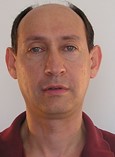
Sharon Gannot is a Professor at the Faculty of Engineering, Bar-Ilan University, Israel, where he is heading the Data Science Program. He also serves as the Faculty Vice Dean and the Deputy Director of the Data Science Institute. Dr. Gannot took many leadership roles in the scientific community, including membership in IEEE Signal Processing Society (SPS) Conferences, Technical Directions and Education Boards, Chairing the Audio and Acoustic Signal Processing (AASP) technical committee, serving as Associate Editor and Senior Area Chair for several journals, inc. IEEE Transactions on Audio, Speech, and Language Processing, and Signal Processing Magazine, and serving as the General Co-Chair for IWAENC 2010 and WASPAA 2013. Dr. Gannot will be the general co-chair of Interspeech to be held in Jerusalem in 2024. Currently, he is serving as the Chair of IEEE SPS, Data Science Initiative, a member of the IEEE-SPS Education Board and a member of the IEEE-SPS Education Center Editorial Board, and a member EURASIP Signal Processing for Multisensor System TAC.
Dr. Gannot was selected (with colleagues) to present tutorials at IEEE International Conference on Acoustics, Speech, and Signal Processing (ICASSP) 2012, European Signal Processing Conference (EUSIPCO) 2012, ICASSP 2013, EUSIPCO 2013 and EUSIPCO 2019, and was a keynote speaker for IWAENC, Aachen, Germany, 2012; International Conference on Latent Variable Analysis and Signal Separation (LVA/ICA) Grenoble, France, 2017, Informationstechnische Gesellschaft im VDE (ITG) Conference on Speech Communication, Oldenburg, Germany 2018 and Audio Analysis Workshop, Aalborg, Denmark 2018. Dr. Gannot is the recipient of Bar-Ilan University Outstanding Lecturer Award in 2010 and 2014 and the Bar-Ilan Rector Innovation in Research Award in 2018. He is also a co-recipient of twelve best paper awards. He is the recipient of the EURASIP Group Technical Achievement Award in 2022. Dr. Gannot is an IEEE Fellow for contributions to acoustical modeling and statistical learning in speech enhancement (Class 2021). Dr. Gannot’s research interests include statistical signal processing and machine learning. The methods he develops utilize either single- and multi-microphone (ad hoc) arrays, and are applied to speech enhancement, noise reduction and speaker separation and diarization, dereverberation, speaker localization and tracking. Dr. Gannot has published 285 peer-reviewed papers in the field, co-edited 3 books and was a co-author of another book.
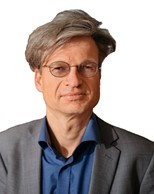
Martin Haardt has been a Full Professor in the Department of Electrical Engineering and Information Technology and Head of the Communications Research Laboratory at Ilmenau University of Technology, Germany, since 2001. After studying electrical engineering at the Ruhr-University Bochum, Germany, and at Purdue University, USA, he received his Diplom-Ingenieur (M.S.) degree from the Ruhr-University Bochum in 1991 and his Doktor-Ingenieur (Ph.D.) degree from Munich University of Technology in 1996. In 1997 he joint Siemens Mobile Networks in Munich, Germany, where he was responsible for strategic research for third generation mobile radio systems. From 1998 to 2001 he was the Director for International Projects and University Cooperations in the mobile infrastructure business of Siemens in Munich, where his work focused on mobile communications beyond the third generation. During his time at Siemens, he also taught in the international Master of Science in Communications Engineering program at Munich University of Technology.
In 2018, Martin Haardt was named an IEEE Fellow “for contributions to multi-user MIMO communications and tensor-based signal processing.” He has received the 2009 Best Paper Award from the IEEE Signal Processing Society, the Vodafone (formerly Mannesmann Mobilfunk) Innovations-Award for outstanding research in mobile communications, the ITG best paper award from the Association of Electrical Engineering, Electronics, and Information Technology (VDE), and the Rohde & Schwarz Outstanding Dissertation Award.
His research interests include wireless communications, array signal processing, high-resolution parameter estimation, as well as tensor-based signal processing.
Prof. Haardt has served as a Senior Editor for the IEEE Journal of Selected Topics in Signal Processing (since 2019), as an Associate Editor for the IEEE Transactions on Signal Processing (2002-2006 and 2011-2015), the IEEE Signal Processing Letters (2006-2010), the Research Letters in Signal Processing (2007-2009), the Hindawi Journal of Electrical and Computer Engineering (since 2009), the EURASIP Signal Processing Journal (2011-2014), and as a guest editor for the EURASIP Journal on Wireless Communications and Networking.
From 2011 until 2019 he was an elected member of the Sensor Array and Multichannel (SAM) technical committee of the IEEE Signal Processing Society, where he served as the Vice Chair (2015–2016), Chair (2017–2018), and Past Chair (2019). Since 2020, he has been an elected member of the Signal Processing Theory and Methods (SPTM) technical committee of the IEEE Signal Processing Society.
Moreover, he has served as the technical co-chair of PIMRC 2005 in Berlin, Germany, ISWCS 2010 in York, UK, the European Wireless 2014 in Barcelona, Spain, as well as the Asilomar Conference on Signals, Systems, and Computers 2018, USA, and as the general co-chair of WSA 2013 in Stuttgart, Germany, ISWCS 2013 in Ilmenau, Germany, CAMSAP 2013 in Saint Martin, French Antilles, WSA 2015 in Ilmenau, SAM 2016 in Rio de Janeiro, Brazil, CAMSAP 2017 in Curacao, Dutch Antilles, SAM 2020 in Hangzhou, China, as well as the Asilomar Conference on Signals, Systems, and Computers 2021, USA.
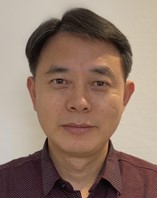
Zheng-Hua Tan is a Professor in the Department of Electronic Systems and a Co-Head of the Centre for Acoustic Signal Processing Research at Aalborg University, Aalborg, Denmark. He is also a Co-Lead of the Pioneer Centre for AI, Denmark. He was a Visiting Scientist at the Computer Science and Artificial Intelligence Laboratory, MIT, Cambridge, USA, an Associate Professor at the Department of Electronic Engineering, Shanghai Jiao Tong University, Shanghai, China, and a postdoctoral fellow at the AI Laboratory, KAIST, Daejeon, Korea. His research interests are centred around deep representation learning and generally include machine learning, deep learning, speech and speaker recognition, noise-robust speech processing, and multimodal signal processing. He is the Chair of the IEEE Signal Processing Society Machine Learning for Signal Processing Technical Committee (MLSP TC). He serves on the Conferences Board and the Technical Directions Board of the IEEE Signal Processing Society. He is an Associate Editor for the IEEE/ACM TRANSACTIONS ON AUDIO, SPEECH AND LANGUAGE PROCESSING. He has served as an Associate/Guest Editor for several other journals. He was the General Chair for IEEE MLSP 2018 and a TPC Co-Chair for IEEE SLT 2016.
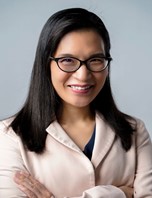
Nancy F. Chen received her Ph.D. from MIT and Harvard in 2011. She worked at MIT Lincoln Laboratory on her Ph.D. research in multilingual speech processing. She is now leading research efforts in conversational AI and natural language generation with applications related to education, healthcare journalism, and defense at the Institute for Infocomm Research (I2R), A*STAR. Speech evaluation technology developed by her team has been deployed at the Ministry of Education in Singapore to support home-based learning. Dr. Chen led a cross-continent team working on low-resource spoken language processing, which was one of the top performers in the NIST Open Keyword Search Evaluations (2013-2016), funded by the IARPA Babel program.
Dr. Chen has received numerous awards, including Singapore 100 Women in Tech (2021), Young Scientist Award at MICCAI (2021), Best Paper Award at SIGDIAL (2021), the 2020 P&G Connect + Develop Open Innovation Award, 2019 L'Oréal UNESCO Singapore For Women in Science National Fellowship, Best Paper at APSIPA ASC (2016), Singapore MOE (Ministry of Education) Outstanding Mentor Award (2012), the Microsoft-sponsored IEEE Spoken Language Processing Grant (2011), Outstanding Paper at ICASSP (2011), and the NIH (National Institute of Health) Ruth L. Kirschstein National Research Award (2004-2008).
Dr. Chen is currently serving on the ISCA (International Speech Communication Association) Board (2021-2025), a senior IEEE member (2015-present), an elected member of the IEEE Speech and Language Technical Committee (2016-2018, 2019-2021), senior area editor of Signal Processing Letters (2021-2022), associate editor of IEEE/ACM Transactions on Audio, Speech, and Language Processing (2020-2023), Neurocomputing (2020-2021), and IEEE Signal Processing Letters (2019-2021) and was the guest editor for the special issue of “End-to-End Speech and Language Processing” in the IEEE Journal of Selected Topics in Signal Processing (2017).
Dr. Chen has also consulted for various companies ranging from startups to multinational corporations in the areas of emotional intelligence (Cogito Health), speech recognition (Vlingo, acquired by Nuance), climate change (normal, an early-stage social impact startup), EdTech (NovoLearning), and defense/aerospace (BAE Systems).

Hoi-To Wai received his PhD degree from Arizona State University (ASU) in Electrical Engineering in Fall 2017, B. Eng. (with First Class Honor) and M. Phil. degrees in Electronic Engineering from The Chinese University of Hong Kong (CUHK) in 2010 and 2012, respectively. He is an Assistant Professor in the Department of Systems Engineering & Engineering Management at CUHK. He has held research positions at ASU, UC Davis, Telecom ParisTech, Ecole Polytechnique, LIDS, MIT.
Hoi-To's research interests are in the broad area of signal processing, machine learning and distributed optimization, with a focus on their applications to network science. His dissertation has received the 2017's Dean's Dissertation Award from the Ira A. Fulton Schools of Engineering of ASU and he is a recipient of a Best Student Paper Award at ICASSP 2018.
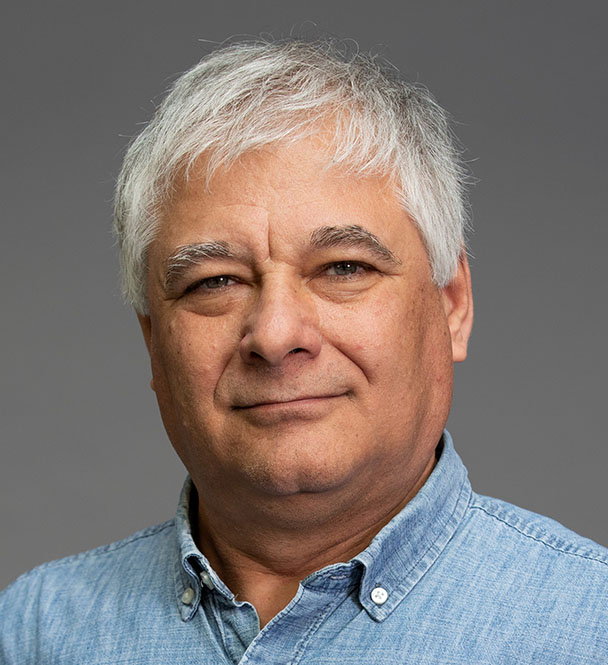
Dr. Ivan Tashev received his Diploma Engineer degree (master’s equivalent) in Electronic Engineering and PhD in Computer Science from the Technical University of Sofia, Bulgaria, in 1984 and 1990 respectively. He was assistant professor in this university, teaching “Data and Signal Processing” and “Programming of Real-time Systems”, when he joined Microsoft in 1998. Currently Ivan Tashev is a Partner Software Architect and leads the Audio and Acoustics Research Group in Microsoft Research – Redmond, WA, USA. His research interests include audio signal processing, machine learning, multichannel transducers, bio-signal processing. He also coordinates the Brain-Computer Interfaces project in MSR. Dr. Tashev published two books, two book chapters, 100+ scientific papers, listed as inventor in 50 US patents. He is affiliate professor in University of Washington in Seattle, and honorary professor at Technical University of Sofia, Bulgaria. Dr. Tashev transferred algorithms to RoundTable device, Windows, Microsoft Auto platform, and served as the audio architect of Kinect for Xbox and of HoloLens. He is IEEE Fellow, member of AES and ASA. More details about him can be found in his web page https://www.microsoft.com/en-us/research/people/ivantash/.
